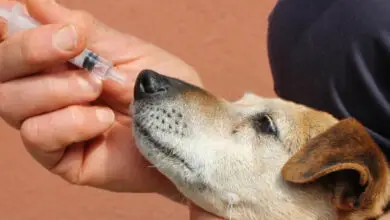What To Do About Neighbors Aggressive Dog

1. Introduction
Dealing with an aggressive dog in your neighborhood can be a difficult and stressful situation. It can be hard to know how to handle the situation, especially if the dog belongs to a neighbor or someone you know. In this article, we will discuss what to do about neighbors aggressive dog, including signs of aggression, how to handle the situation, and legal implications.
2. What is an Aggressive Dog?
An aggressive dog is one that exhibits threatening behavior towards people or other animals. This behavior may include growling, barking, lunging, snapping, and biting. Aggressive dogs may also show signs of fear or anxiety when they are around people or other animals.
3. Reasons Why a Dog May Be Aggressive
There are many reasons why a dog may become aggressive. These include fear, lack of socialization and training, medical conditions, pain or discomfort, protection of territory or belongings, and more. It is important to understand why a dog may be exhibiting aggressive behavior in order to properly address the issue.
4. Signs of an Aggressive Dog
It is important to recognize the signs of an aggressive dog in order to protect yourself and others from harm. Common signs of aggression include growling, barking, snarling, lunging at people or other animals, snapping and biting. Other signs may include raised hackles (the fur on the back of the neck standing up), dilated pupils, tense body language, and lip licking.
5. How to Handle an Aggressive Dog in Your Neighborhood
If you encounter an aggressive dog in your neighborhood it is important to remain calm and not make any sudden movements that may startle the animal. If possible try to move away slowly while keeping your eyes on the animal until you are out of reach. Do not make loud noises or try to scare the animal as this may further agitate them and increase their aggression. If you feel threatened by the animal call for help immediately and contact Animal Control or the police if necessary.
6. How to Deal with the Owner of an Aggressive Dog
If you know who owns an aggressive dog it is important to approach them calmly but firmly about their pet’s behavior. Explain to them what you have observed and ask them if they are aware that their pet is exhibiting aggressive behavior. If they are not aware then suggest ways that they can help correct their pet’s behavior such as enrolling them in obedience classes or providing more exercise or playtime for their pet so that they can release some energy in a positive way rather than through aggression towards others.
7. What Are The Legal Implications?
Depending on where you live there may be laws regarding ownership of aggressive dogs which could result in fines or other penalties for the owner if their pet is found to be exhibiting dangerous behavior towards people or other animals on multiple occasions. It is important to research these laws as well as any local ordinances regarding dangerous dogs so that you are aware of your rights and responsibilities should a situation arise involving an aggressive dog in your neighborhood.
8 Tips on Preventing Aggression from Dogs in Your Neighborhood
There are several things that you can do as a community member to help prevent aggression from dogs in your neighborhood:
• Make sure all dogs are spayed/neutered – Unaltered dogs tend to be more prone to aggression due to higher testosterone levels which make them more territorial and protective over their space;
• Enroll pets in obedience classes – Obedience classes can help teach dogs proper socialization skills which can reduce aggression;
• Provide exercise & playtime – Exercise helps release energy in a positive way which can reduce aggression;
• Don’t leave food out – Leaving food out can attract wild animals which can trigger territorial instincts causing aggression;
• Supervise children around pets – Children should always be supervised when playing with pets so that they don’t accidentally provoke them;
• Keep pets away from strangers – If possible keep pets away from strangers until they become comfortable with them;
• Socialize pets with other animals – Socializing pets with other animals can help reduce fear-based aggression;
• Spay/neuter strays – Spaying/neutering strays will help reduce unwanted litters which can lead to more stray animals roaming neighborhoods;
• Provide adequate shelter & food for strays – Providing adequate shelter & food for strays will help keep them off streets & reduce potential for conflict between humans & animals;
• Report any suspicious activity – Report any suspicious activity involving aggressive dogs immediately so that authorities can take appropriate action;
• Educate yourself & others – Educate yourself & others on how to properly handle situations involving aggressive dogs so that everyone remains safe & protected from harm;
9 How To Keep Yourself And Others Safe Around Dogs
It is important for everyone living near an aggressive dog (or any kind of dog) to learn how to stay safe around them:
• Don’t approach unfamiliar dogs without permission – Always ask permission before approaching an unfamiliar dog even if it looks friendly;
• Don’t run away from a strange dog – Running away from a strange dog could cause it to chase after you out of instinct;
• Don’t stare into its eyes – Staring into a strange dog’s eyes could be interpreted as a challenge by some breeds;
• Don’t put your hands near its face – Putting your hands near a strange dog’s face could make it feel threatened;
• Don’t attempt petting unknown dogs – Petting unknown dogs could cause them to become defensive or scared;
• Be aware of body language – Pay attention to a strange dog’s body language as it will tell you whether it feels threatened or not;
• Avoid sudden movements – Sudden movements could startle some breeds causing them to become defensive or scared;
• Carry pepper spray – Carrying pepper spray when walking near strange dogs could give you added protection should something happen;
• Call for help – If you feel threatened by an unknown dog call for help immediately and contact Animal Control if necessary;
< h 2 > 10 . Conclusion < / h 2 >
Dealing with neighbors aggressive dog can be stressful but it is important that we take steps towards protecting ourselves and others from harm by understanding what causes aggression in dogs and learning how best handle situations involving aggressive dogs both legally and safely . Through proper education , understanding , communication , training , supervision , spaying / neutering , socialization , providing adequate shelter & food , reporting suspicious activity , carrying pepper spray , avoiding sudden movements , controlling our own emotions , etc . we can ensure that everyone remains safe while still allowing our furry friends their freedom . < h 2 > 11 . Resources < / h 2 >



